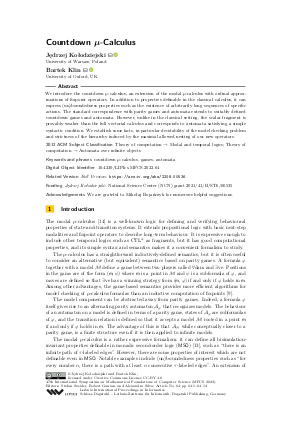LIPIcs.MFCS.2022.64.pdf
- Filesize: 0.7 MB
- 14 pages

 Creative Commons Attribution 4.0 International license
Creative Commons Attribution 4.0 International license







Feedback for Dagstuhl Publishing